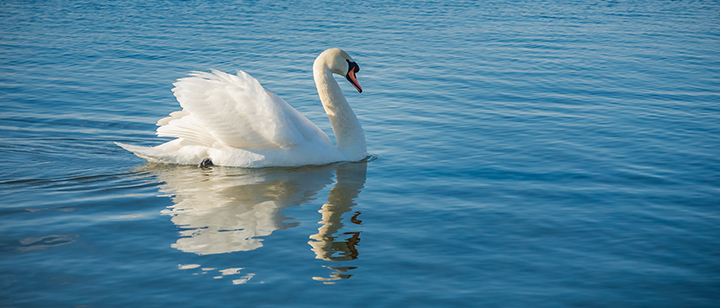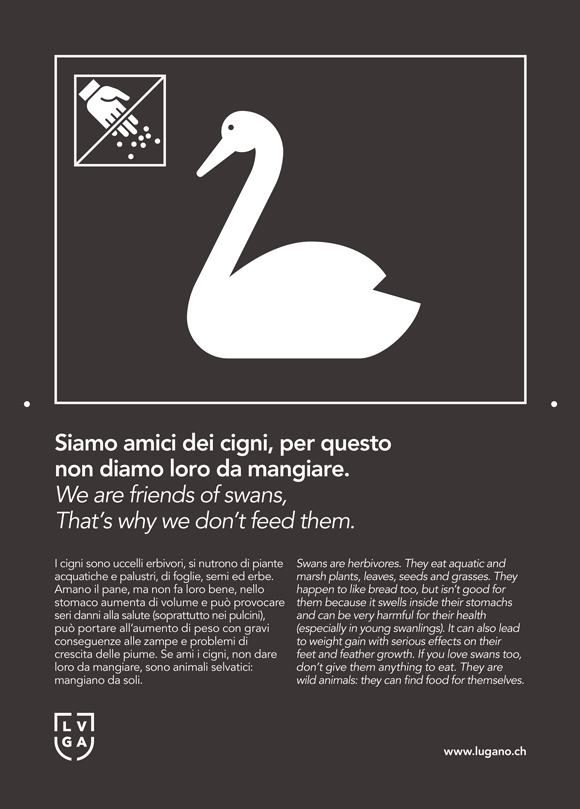Swan
It inhabits the lake and its shores and will sometimes venture into the city streets. This fascinating aquatic animal is completely self-sufficient and does not need to be foraged.

A symbol of beauty and elegance, the swan is a pleasant presence for all who frequent the lake and its shores. Usually much appreciated and loved for its charming bearing, this beautiful aquatic animal can cause many people to want to friendly share their food with it. However, a behavior that, despite good intentions, can cause serious damage to its health. It is therefore important not to forage for swans, also taking into account the fact that, in the wild, they are completely self-sufficient, feeding mainly on aquatic plants, grasses, leaves, grains and various seeds.
It is also not recommended to get too close to them since they are extremely territorial and defend their habitat from both humans and other animals.
Don't forage for swans (especially with bread)
Swans love bread, but although giving them bread may seem like a thoughtful and kind gesture, for their own good it is important that they do not eat any. In fact, it can have even lethal effects in hatchlings and potentially serious effects in still young specimens: in the stomach the bread increases in volume, leading to weight gain with serious consequences for the legs and problems with feather growth.
Being wild animals, swans do not need to be given food: they provide it themselves. This is a principle that the City of Lugano wanted to highlight by installing explanatory signs along the shores of the lake to raise awareness of the importance of not foraging for swans. This initiative aims to ensure the welfare of the animals and preserve their health in the natural setting of the lake.
The City of Lugano invites tourists and citizens to pay attention to the signs placed along the shores of the lake.

Curiosities about the swan
Appearance and size
Swans are spectacular creatures, characterized by a remarkable diversity in species, colors, plumage and migratory abilities. With a height of up to 1.5 meters and a maximum weight of 15 pounds for males and 11 pounds for females, adults can sport a wingspan of about 3 meters.
Life and Family
Swans are monogamous animals that remain faithful throughout their lives (which can last up to 35 years). During the winter, courtship takes place, during which the two swans initiate a veritable dance on the water, with distinctive sounds and sensual neck movements. In spring, the female lays 5 to 8 bluish-colored eggs and broods them for about 35 days. The male meanwhile guards the nest. The fledglings are already able to swim at an early age, but the parents maintain an extremely protective attitude until they are 4 to 5 months old.
The English version of this page was created with the aid of automatic translation tools and may contain errors and omissions.
The original version is the page in Italian.